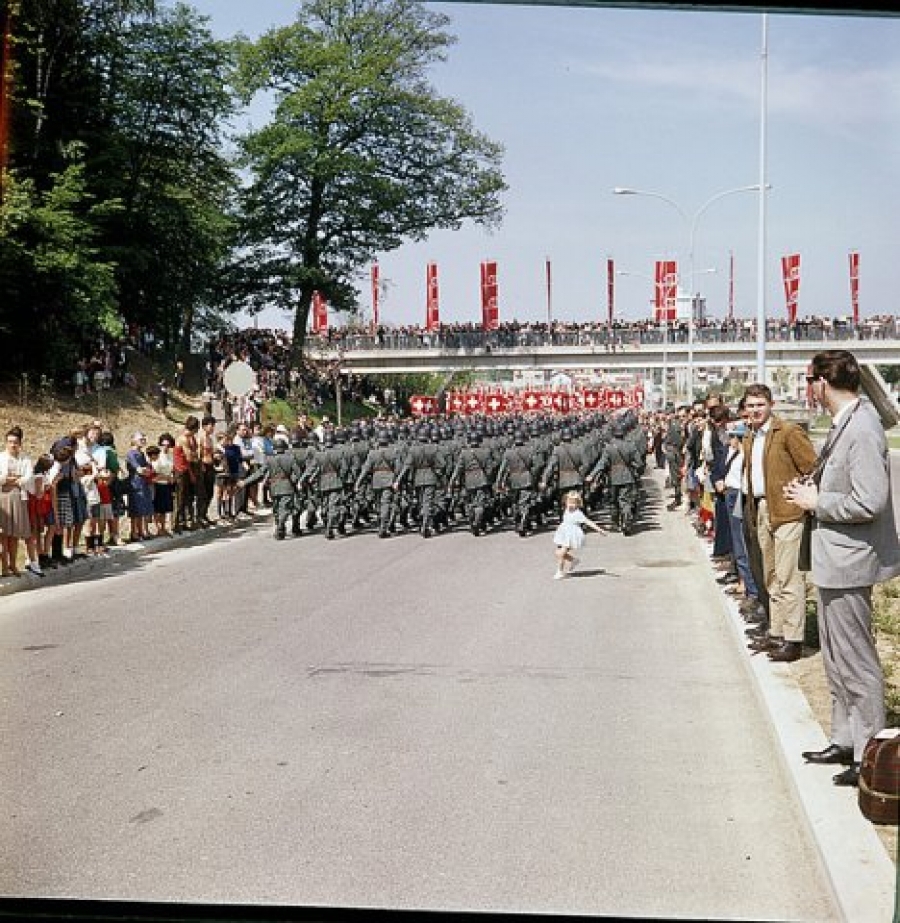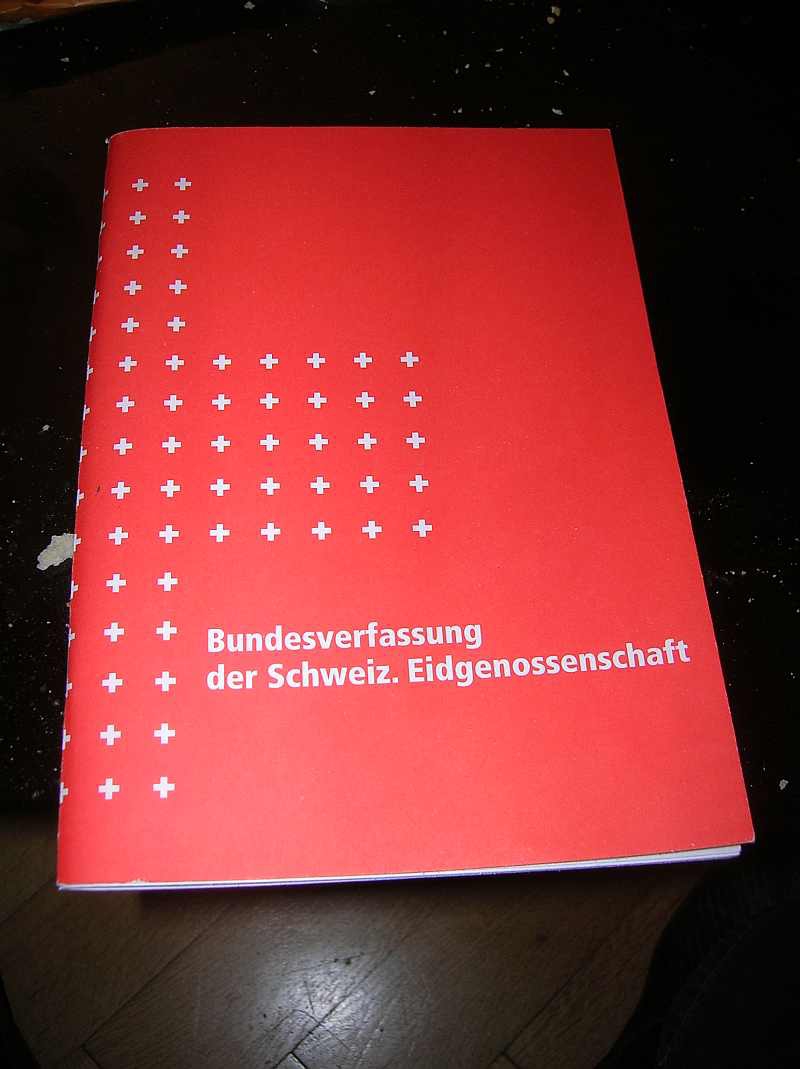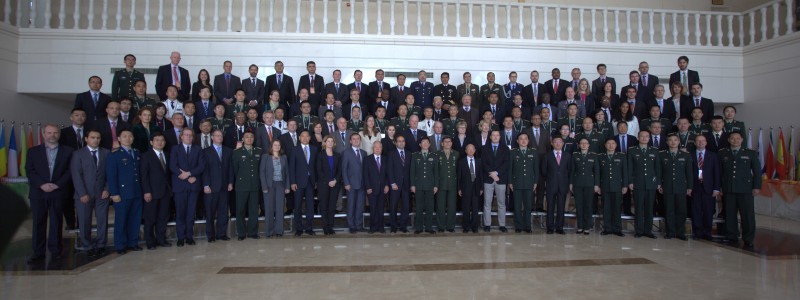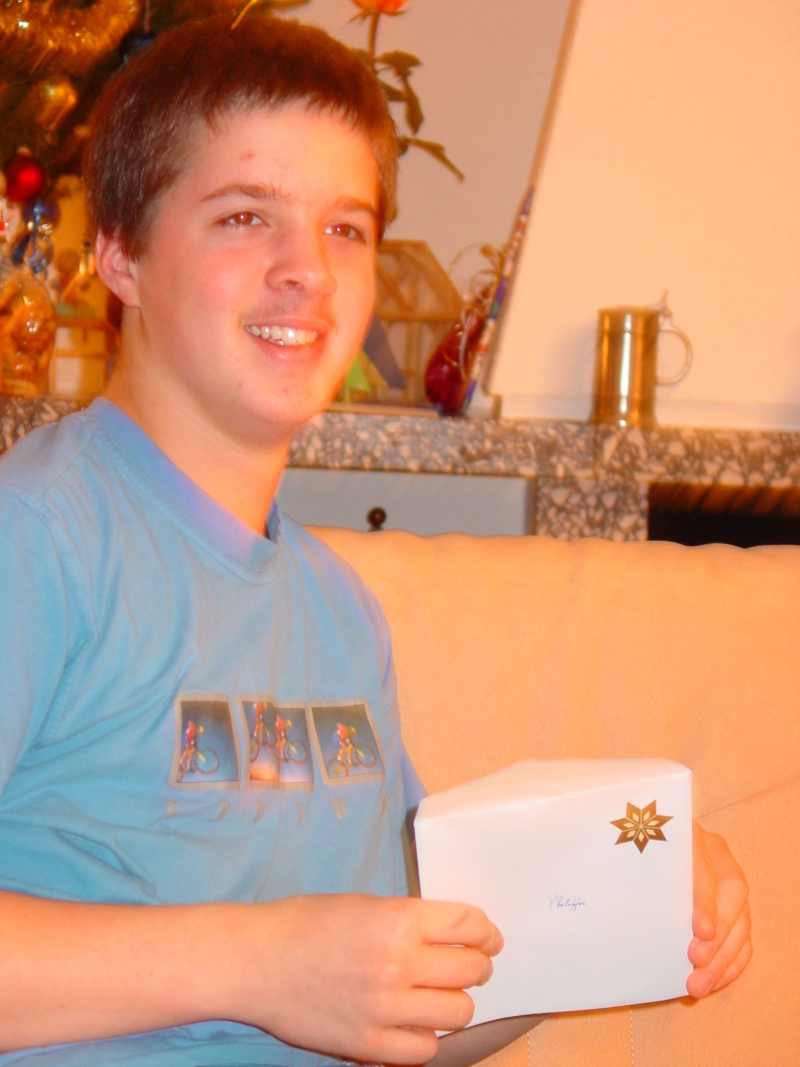Around 120 participants from 30 countries and the United Nations, including leading policymakers, practitioners and academics, descended upon the scenic venue situated north of the Chinese capital, ready to exchange experiences, views and ideas on how to overcome obstacles, build capacities and promote the effective implementation of peace operations.
After a tour of the Peacekeeping Centre, where training programs are run for Chinese peacekeepers before deployment, the Challenges Annual Forum was opened by Senior Colonel Zhang Li, Deputy Director-General of the Peacekeeping Affairs Office of the Ministry of National Defense of China and Ms Annika Hilding Nordberg, Director of the Challenges Forum Secretariat, outlining the agenda and setting the tone for the dynamic discussions to follow: while there are many challenges of modern peace operations, they can be overcome by a committed partnership.
The thematic focus for this Annual Forum was « Building Capacity for Peace Operations in Response to Diversifies Threats: What Lies Ahead? » – a topical issue in view of the increased presence of non-traditional threats in many areas where peace operations are deployed.
The chosen theme was also very timely in relation to the upcoming review of the UN peace operations, initiated by the UN Secretary-General Ban Ki-moon last June and to be completed next year. How to enhance the tools and capabilities of the UN peace operations to more effectively meet the challenges in complex security environments will be a central theme for this review. Mr David Haeri, Director of the Policy, Evaluation and Training Division, Departments of Peacekeeping Operations and Field Support in the UN Secretariat, shared the current thinking of the United Nations on these matters.
The challenges posed by the non-traditional threats – such as terrorism, piracy, asymmetric warfare and transnational organized crime – give rise to a number of questions, not only about what strategies, capabilities and skills are needed for peacekeepers to effectively deliver on their mandates, but also how to improve the ability to better face threats directed at the peacekeepers themselves. Two of the sessions were devoted to the above set of questions. Among the issues raised was the need to make better use of modern technology and innovations and to develop strategic partnerships with regional organizations.
A third session took a closer look at the logistical requirements of conducting complex peace operations, in particular in remote areas. As the security threats increasingly take on non-traditional forms and often occur away from urban centers, in locations where the infrastructure is poor, the logistical challenges of undertaking peace operations are becoming more daunting. Also here, the question of how best to provide the right capabilities was addressed, including the need for logistics support for rapid deployment and for robust mandates.
Insightful and thought-provoking recommendations
A fourth and final session focused on the issue of partnerships for capacity-building of peacekeepers, both at international, regional and national levels. Among the recommendations put forward was the need to enhance pre-deployment training and training while deployed, to harmonize standards for training program and to promote a more interoperable training system for the peacekeepers.
The distinguished panelists offered insightful and thought-provoking presentations and recommendations, highlighting different aspects of the issues at hand. The interactive discussions in the auditorium were continued over the coffee breaks and at the dining table, the different professional and regional perspectives mixing and synergizing.
The horizons were further expanded by a visit to the Great Wall. A much appreciated tour of the Police Peacekeeping Training Centre in Lanfang was also arranged for the participants in the Challenges Annual Forum. Madam Nancy Gao, Director of the Police Peacekeeping Training Centre, and her team gave a presentation of the training program offered, including a demonstration of exercises by a Formed Police Unit training to be deployed in Liberia next year.
At the end of the Challenges Annual Forum, Major General (ret.) Huang Baifu, Vice Chairman of the China Institue of International Strategic Studies, offered concluding remarks and summarized the main points of the discussions. As pointed out by the hosting nation, the autumn is the season for harvest. Indeed, the Challenges Annual Forum in Beijing produced a rich outcome in terms of ideas, proposals and recommendations, as well as strengthened partnerships and networks among the participants. And most certainly, new seeds have been sown for later harvest in coming years.

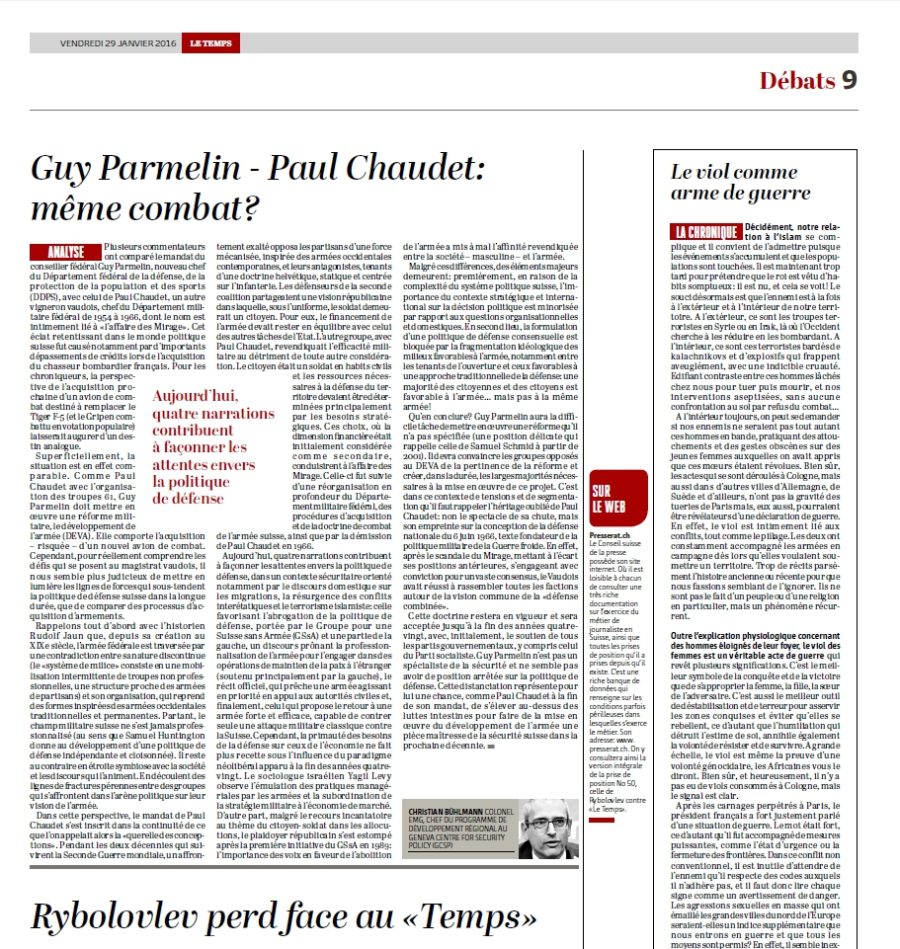


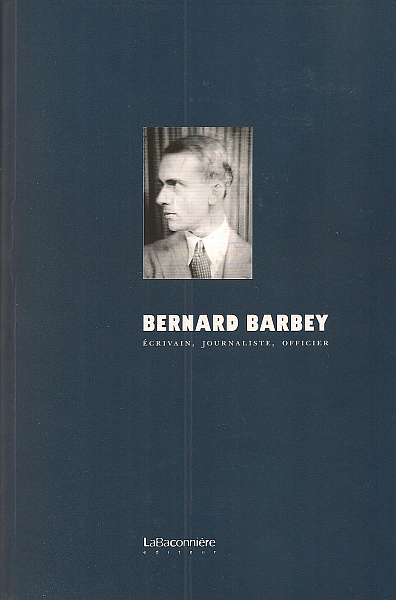
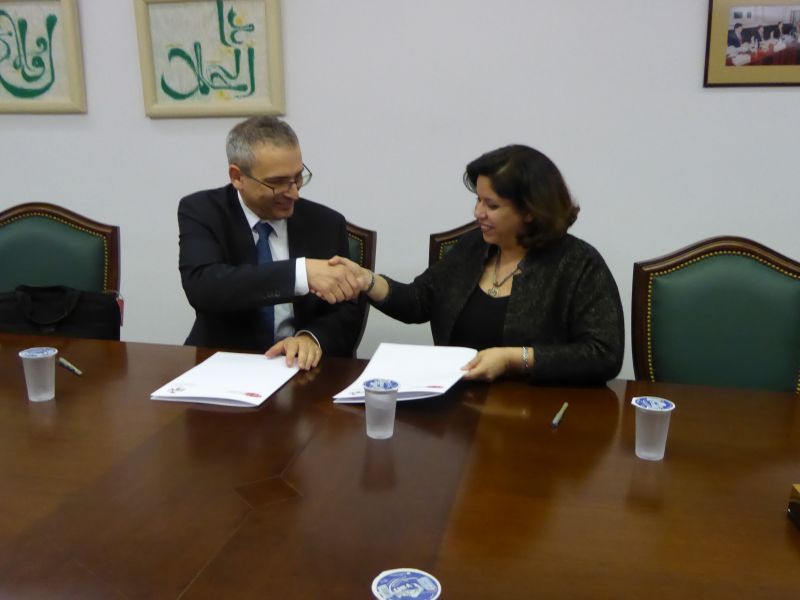
![[REPOST] Defence Attaché Orientation Module: 9th Training Course in Diplomacy and Security Policy – Amman [REPOST] Defence Attaché Orientation Module: 9th Training Course in Diplomacy and Security Policy – Amman](https://christianbuehlmann.com/wp-content/uploads/2015/11/f87fbc910391d7330524962d6e39904f-f4a.jpg)


